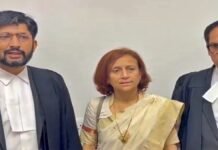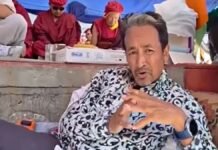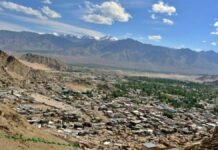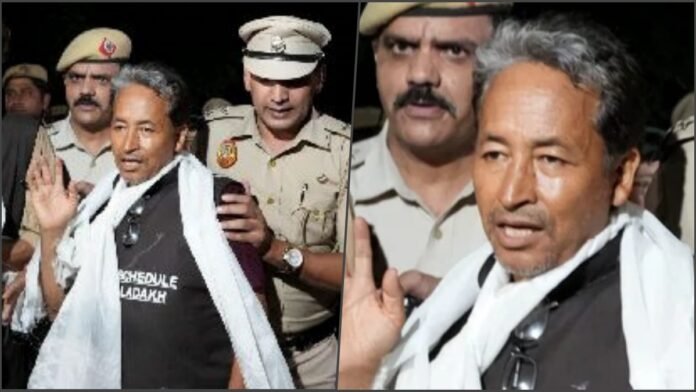
New Delhi: Ladakh-based climate activist Sonam Wangchuk, along with 150 supporters, was released after being held in detention for 36 hours by the Delhi Police. The group had been detained at the Singhu border on Monday night as they attempted to enter Delhi during their ‘Delhi Chalo Padyatra’ a peaceful march aimed at raising awareness about environmental conservation and Ladakh’s constitutional rights. The detention occurred due to the imposition of Section 163 of the Bharatiya Nagarik Suraksha Sanhita (BNSS), a law prohibiting large gatherings in the capital until October 6.
After their release on Wednesday evening, Wangchuk and his supporters paid tributes to Mahatma Gandhi at Rajghat, underscoring their peaceful protest’s message of non-violence and environmental protection.
Mission to Protect Ladakh: The Call for Sixth Schedule Inclusion
Wangchuk’s march, which began on September 1 in Leh, had a clear objective: to press the government to include Ladakh under the Sixth Schedule of the Indian Constitution. This demand would grant local communities in Ladakh greater law-making powers, particularly in managing their land, resources, and cultural heritage. “For Ladakh, Schedule 6 offers protection to tribal and local people, granting them authority over governance,” Wangchuk said after his release.
The activist also emphasized that he has submitted a memorandum to the central government, urging them to protect Ladakh’s unique environment and cultural identity. He expressed hope for dialogue with India’s top leadership, stating that the Union Home Ministry had assured him of a forthcoming meeting with either the President, Prime Minister, or Home Minister to discuss Ladakh’s future.
Environmental Concerns and the Push for Statehood
In addition to pushing for Sixth Schedule protections, Wangchuk has called for the restoration of democracy through statehood for Ladakh. The region, which was reorganized as a Union Territory following the bifurcation of Jammu and Kashmir in 2019, has seen growing demands for greater autonomy and environmental safeguards, particularly as the fragile Himalayan ecosystem faces increasing threats from development and climate change. Wangchuk has long been a vocal advocate for sustainable development in the region, highlighting the need for constitutional protections to ensure Ladakh’s ecological and cultural survival.
Political Reactions: Opposition Criticizes Detention
Wangchuk’s detention drew sharp criticism from opposition leaders. Congress MP Rahul Gandhi called the detention of the activist and his supporters “unacceptable,” especially given their peaceful approach to advocating for Ladakh’s environmental and constitutional rights. Gandhi’s statement, posted on X (formerly Twitter), echoed the sentiment of many who saw the detention as an overreach by the authorities.
Delhi’s AAP leader and former Chief Minister Arvind Kejriwal also voiced his disapproval, questioning the Delhi Police’s decision to block peaceful protesters from entering the capital. “Sometimes they stop farmers, sometimes they stop people from Ladakh. Is Delhi the property of one person?” Kejriwal posted on X, expressing his frustration over the repeated restrictions on peaceful demonstrations in the national capital.
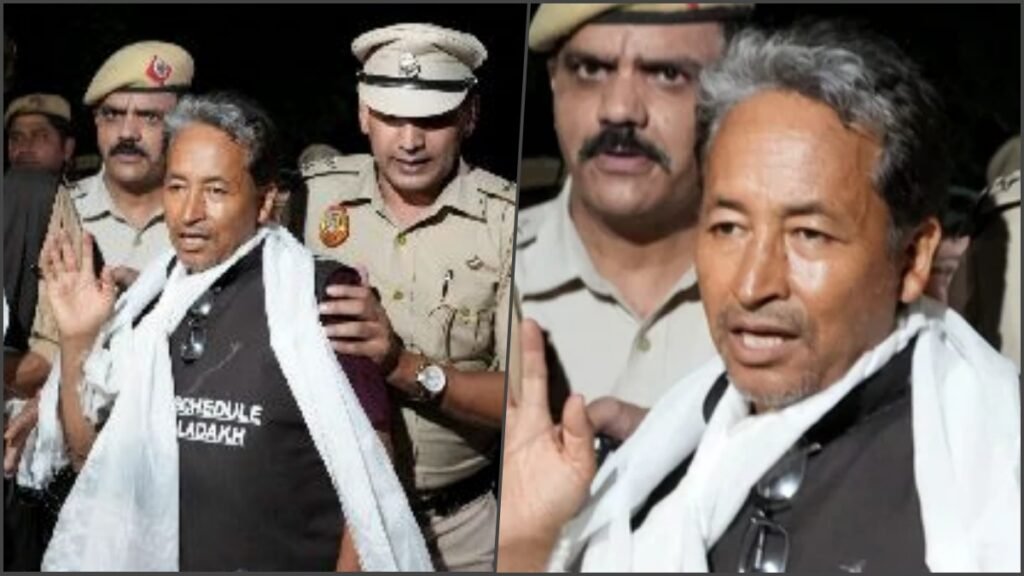
The Legal Context: Section 163 of the BNSS
The Delhi Police’s detention of Wangchuk and his supporters was carried out under Section 163 of the Bharatiya Nagarik Suraksha Sanhita (BNSS), which replaced the earlier Section 144 of the Criminal Procedure Code (CrPC). The order was implemented to prevent large gatherings in Delhi’s central and border areas for six days, up until October 5. This legal provision is often invoked during times of potential unrest or when there are concerns about law and order.
Despite warnings from the police about the prohibitory orders, Wangchuk and his supporters attempted to continue their march, resulting in the detention of approximately 120 participants. The police clarified that women protesters were not detained, and the action was taken in light of the orders to prevent gatherings of five or more people.
Looking Ahead: Will Ladakh’s Demands Be Heard?
As Sonam Wangchuk awaits his promised meeting with India’s top leadership, the focus shifts to whether Ladakh’s demands for inclusion in the Sixth Schedule and statehood will gain traction. The protest has already amplified the conversation surrounding Ladakh’s unique challenges, particularly as the region continues to face environmental degradation. Wangchuk’s march may be over, but the fight for Ladakh’s future is far from finished.





































